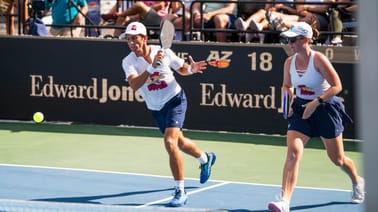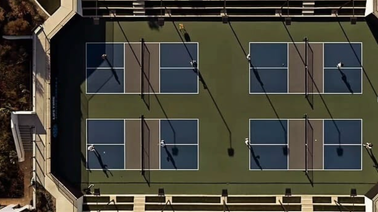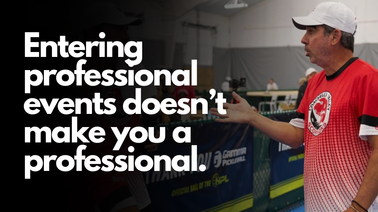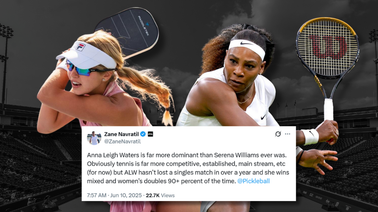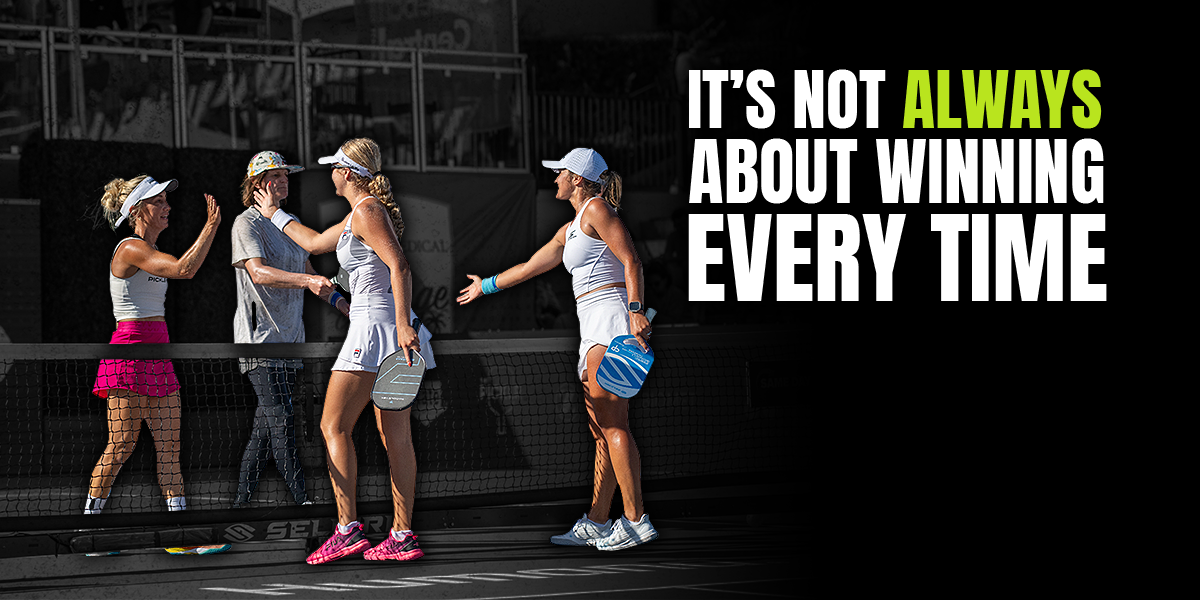
A Friendly Reminder That Winning in Pickleball Isn't the Only Thing That Matters
Editor's Note: Mike Leigh lives in Colorado, where he teaches pickleball in the summer and skiing in the winter. Prior to that, Mike spent 30 years working with elite athletes to improve their performance. Mike’s book, ‘Zen and the Art of Pickleball’, focuses on the mental game of pickleball.
Let's face it: when you're competing in a tournament, you want to win. There’s a gold medal on the line.
Just getting on the podium with a silver or bronze medal can be fun and feel like a good accomplishment. Winning in a tournament requires scouting your opponents (if possible), then devising a strategy to exploit any weaknesses they may display.
Winning means playing your best game and working together as a team. Most likely you’ve decided who the weaker player is on the opposing team. Maybe they’re not good with dinking. Maybe they have trouble getting to lobs. Maybe they can't handle a hard drive hit to them.
Your job is to take advantage of the weaker player. To win, you need to focus on each shot, minimize unforced errors, hit unattackable balls, hit outright winners, and play good defense. In other words, you’re playing your best and trying to outscore your opponents.
However, during recreational play, there’s a different goal in mind. The goal in recreational play is to have fun, be kind to your opponents, work on your own skills as well as help your opponents work on theirs.
I too often see a pair of newbies playing against experienced players who play to win and get wiped off the court.
I too often see good teams hitting to the weaker player just to run up their own score. The better player on the weaker team never sees the ball.
The game is not fun at that point. And usually, the weaker player is unable to compete at the same level as the more talented team on the other side. The weaker player gets forced into errors that are embarrassing and not really helping them improve. This scenario happens way too often in recreational play.
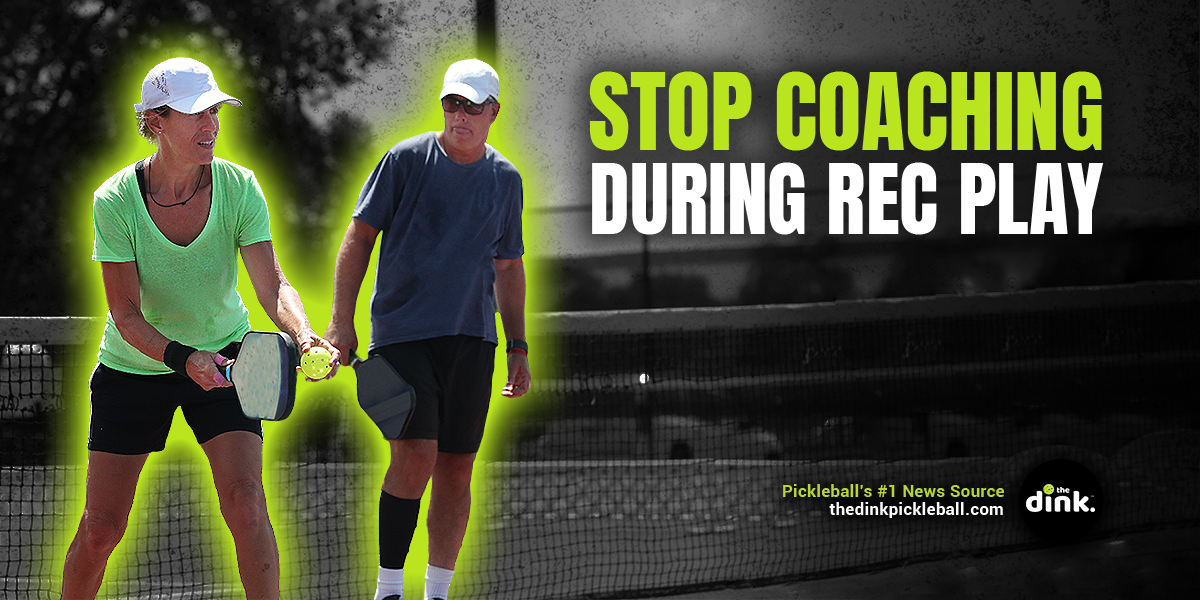
As a pickleball instructor and tournament player, I don’t like to see this happen. If I’m on the court in a social game and I never see a ball because my partner is the weaker player, I call out my opponents. After they run up the score to 5-0, I usually say something like "So, are you having fun winning every point?" Or maybe I say, "Am I ever going to see the ball?”
This usually gets the message across to my opponents that they need to change their approach to the game. Maybe they start hitting more shots to me. Or maybe they lighten up on the velocity of their shots to my partner. In any event, I believe this is a 'teaching moment' for the better team to take the game a little less seriously.
As one of the better players at our club, I am invited to play in competitive games with 4.5 and 5.0 players. And during these games I try to play to the best of my ability. I try to hit the ball to the better player on the other side of the net so that more balls will come back. This helps me improve my game.
Of course, my play can vary from day to day, and I may not always play my best. But I try to maintain a high level of play so that I do not disappoint my partner or my opponents.
I adhere to the philosophy of play that I endorse in the chapter "The Zen of Winning" in my book Zen and the Art of Pickleball. This philosophy is based on the premise that I can help to win rallies with winning shots during a game. The final score of the game does not matter to me as much as playing up to my potential. Playing my best allows me to hit winning shots and to be a winner many times over during the game, even though the final score may not be in my favor.
On the other hand, when I play with players of lower ability (3.0-4.0) at the club during drop-in recreational play, I often do not play as well as I can. I try to play a softer, gentler game and just a little bit better than my opponents. I try to take pace off the ball. I try to hit the ball back to my opponents and keep the ball in play while trying to avoid hitting outright winners.
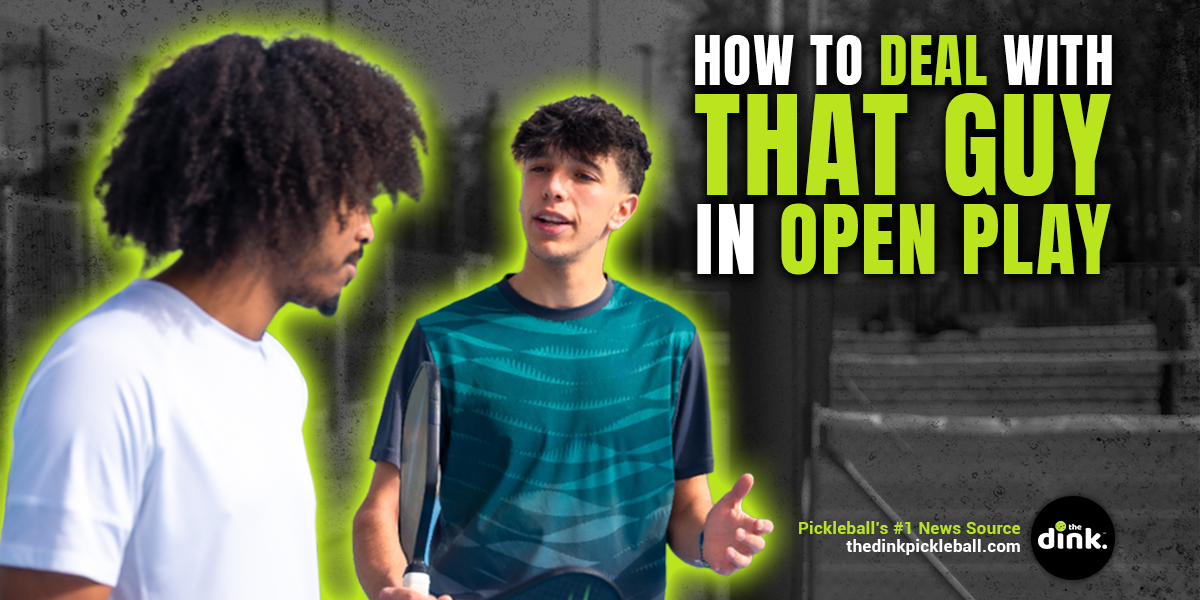
I want my partner and my opponents to get better. So longer rallies are my goal, rather than ending the point quickly with a winner. I can still work on my own skills with dinks and volleys, placement of serves and returns, and maybe a lob or two. I compliment my opponents and my partner for the good shots that they execute.
Winning for me in these recreational games is about having fun and helping others so that everyone comes away a bit happier and a bit better. In other words, I try to be encouraging rather than too competitive. I try to keep the game close and be kind.
I recently saw a hot shot, younger male player and his wife (both in their 50s) play against two older ladies (65 and 75). The ball always went to the 75-year-old, never to the 65-year-old.
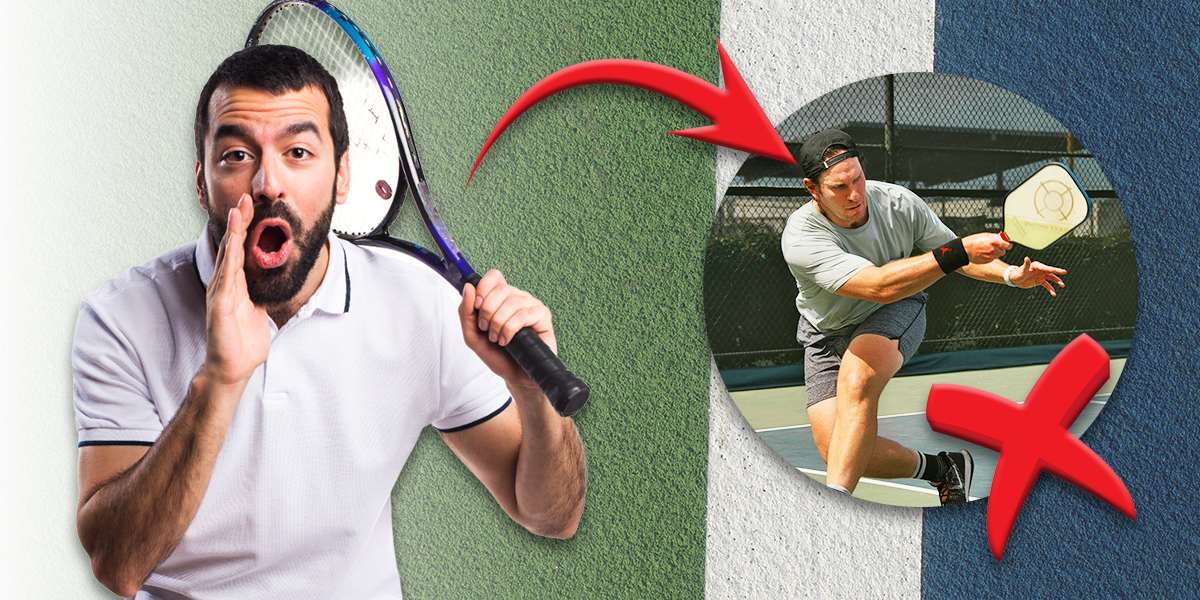
The older lady did not have much success against the youngsters. There was also not much laughter on the court. They won 11-1.
After the game, I asked the young man "was that fun beating two older women 11-1?" His response was "of course, I always want to win."
In my opinion, playing the way that he and his wife did was deplorable. Maybe the youngsters thought they were hot stuff and notched another game in their win column to boost their rating. But their opponents did not come away from the game very happy or better off for it.
By softening the game and being kind, by laughing and having fun, it allows everyone to leave the court feeling better about themselves. Everyone feels happy rather than feeling depressed over losing the game or being embarrassed (and maybe becoming discouraged).
Please remember to be kind on the courts. Let me know what you think. E-mail me at mike.leigh@ideas4usall.com.

Guest Author
Love Pickleball? Join 100k+ readers for free weekly tips, news & gear deals.
Subscribe to The DinkGet 15% off pickleball gear at Midwest Raquet Sports




